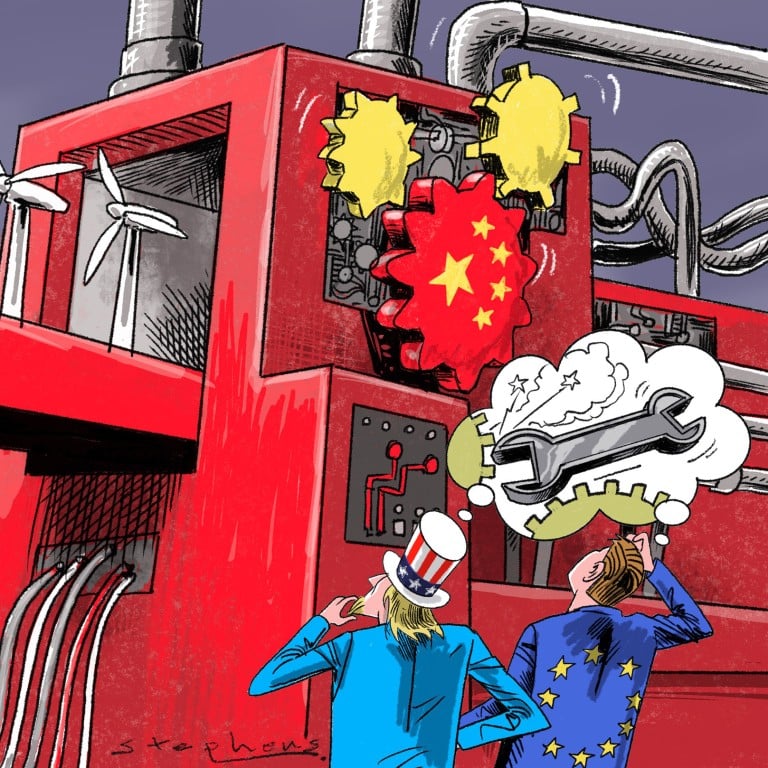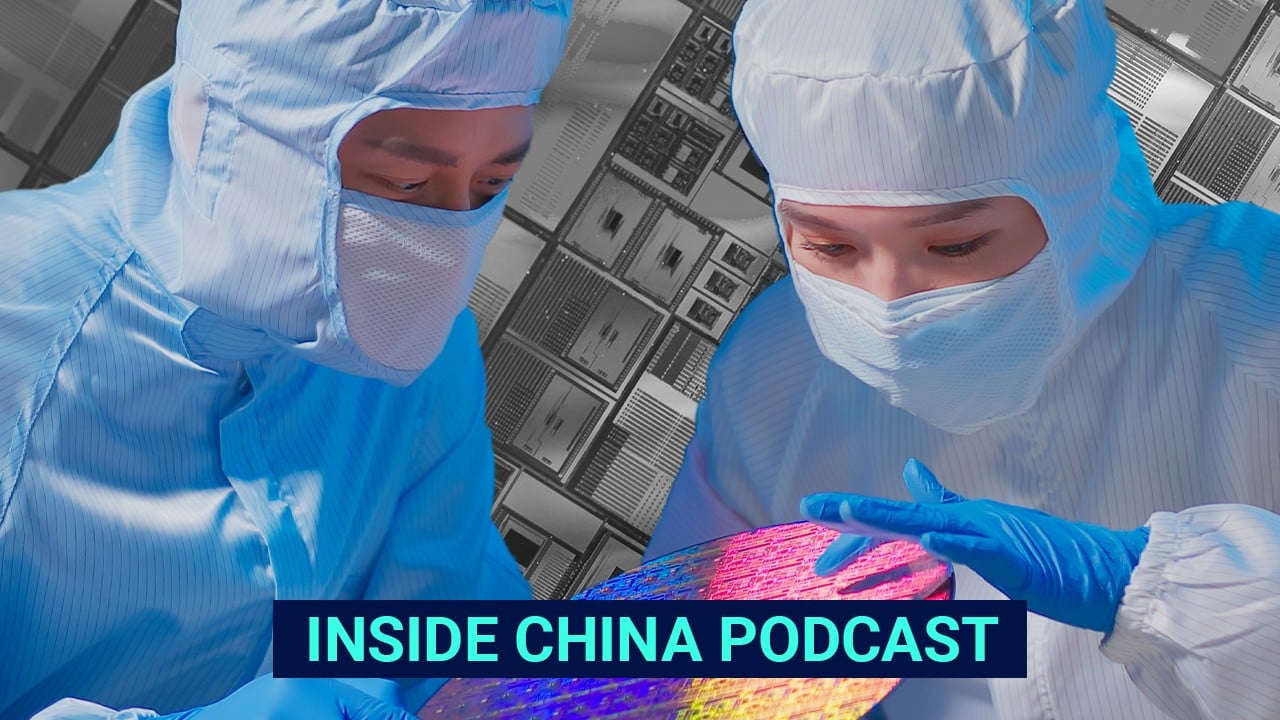
The real reason for US, EU complaints about Chinese overcapacity
- They are defensive because China threatens their dominance in advanced manufacturing, but fail to see how Chinese manufacturing helps the global energy transition and benefits Global South consumers
In their attacks, Washington and Brussels define “overcapacity” as a productive capacity that exceeds domestic demand. This narrow definition would make Adam Smith turn in his grave.
Exports normally happen when there is a surplus of goods after meeting domestic demand. All exports are thus the result of overcapacity. If nations could only produce enough to satisfy domestic markets, there would be no cross-border trade.
For centuries, the West has relentlessly pursued market access for their surplus goods. Imperial Britain even resorted to gunboats to open up China to its products, including opium, in the 1840s. Indeed, disposing of surplus products is an important feature of the West’s wealth creation. It is largely what has made the West rich and what will keep it prosperous.
Are the US and EU prepared to apply the same criterion for overcapacity to themselves and only sell their products domestically?
Moreover, the United States and European Union are also vanguards of and giants in state subsidies.
In agriculture, the US and EU pumped in over US$230 billion in subsidies to their farmers per year from 2019 to 2021, according to the OECD. These subsidies deprive millions of small farmers in the developing world of their livelihoods, and led to the collapse of the World Trade Organization’s Doha Round negotiations.
In truth, China’s formidable manufacturing capacity in the green energy sector is largely due to market forces, rather than government subsidies.
Take EVs for example. Beijing has stressed that while subsidies were provided for research and development at the initial stage, in line with WTO rules, no subsidies have been made available to support manufacturing.
Consequently, China “is likely to continue to grow as an exporter of EVs, thanks to the increasing competitiveness of Chinese EVs, cost advantages of production and large production capacity in China”, according to Ilaria Mazzocco, a senior fellow at the Centre for Strategic and International Studies.
China’s EV lead is unassailable – the Global North simply can’t compete
If Washington and Brussels practised what they preach about maintaining the rule-based international order, they would address their grievances against China through the WTO. Taking matters into their own hands is akin to setting up court and appointing oneself as the judge.
Apart from undermining the WTO’s authority and credibility, the moves by Washington and Brussels call into question the validity of their accusations. Commentators say Washington and Brussels intend to shut China out of the global market.
To be fair, not all of China’s manufacturing prowess is seen as “overcapacity”. They were happy to see China trade tens of millions of its shirts for a Boeing or an Airbus. And they do not seem upset by China’s manufacturing capacity in clothes, furniture and toys, low value-added sectors they have no plan to resurrect.
But they are concerned when China competes in what they consider critical sectors, such as steel, semiconductors and clean energy. They desire to maintain their dominant position in advanced manufacturing.
For many in the developing world, China’s industrial capacity means they can afford what had been priced out of their reach by Western multinationals.
Rich nations won’t meet energy transition goals by shunning Chinese firms
Are Washington or Brussels capable of seeing the global benefits of China’s “overcapacity”? Probably not, as long as their egoistic interests continue to blind them.
Zhou Xiaoming is a senior fellow at the Centre for China and Globalisation in Beijing and a former deputy representative of China’s Permanent Mission to the United Nations Office in Geneva


